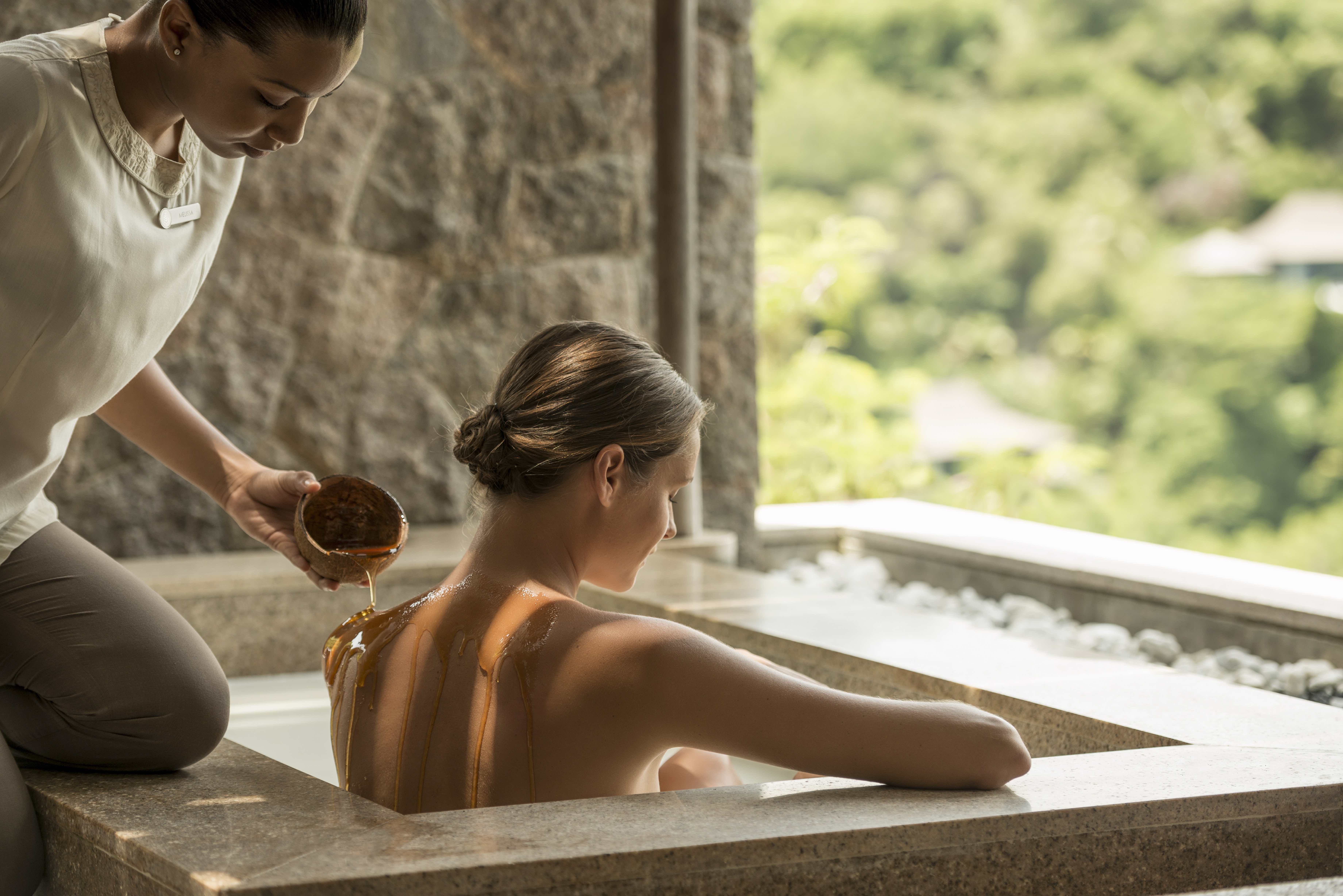The outlook for digital detoxes in spas

Technology has comfortably placed itself in the driver’s seat of most people’s day-to-day lives. According to the latest study by global tech protection and support company Asurion, the average person checks their smartphone every 10 minutes. In the always-connected world of social media, it can feel that much harder to stay focused.
Some researchers believe that the attention span of humans is decreasing as use of modern technology, especially television and smartphones, increases. Internet browsing, with its continual jumping from page to page, is likely to have a similar effect, given that most users spend less than one minute on the average website.
Microsoft Corp conducted a research project in Canada that ran in both 2000 and 2015, surveying 2,000 participants to study the brain activity using electroencephalograms. It discovered that, during these 15 years, the average human attention span fell from 12 to eight seconds.
With bright rays illuminating faces before bedtime, and the media bombarding us around the clock, it’s no wonder we now have a shorter attention span than a goldfish. How much longer can this continue and what are the consequences we face as we continue down this ultra-stimulated path? And more specifically, what does this mean for product development in the spa and wellness field?
The impact
Over recent years, certain pain trends such as skin breakouts, sleep deprivation, lack of grounding and a lost sense of self have been on the rise due to added stress from not enough time “unplugged”. Social media – which to some is a place to seek acceptance – completely distorts others’ perceptions of how they should be living, adding to a loss of confidence, alienation, depression and impaired judgment.
To counterbalance the chaos of the new “normal” of everyday life, consumers are now looking for ways to connect to nature and their surroundings. Offer them outdoor activities where possible, such as hiking, yoga and meditation. Activities like these can help clients to reconnect to the energy that surrounds them and bring mindfulness back to the forefront.
Studies have shown that receiving texts and emails and mindlessly scrolling on social media all release dopamine into the brain, giving the same feeling one would experience after accomplishing a goal. This, however, is a very false sense of accomplishment.
One of the fastest growing trends in the spa market – and a key theme discussed at the Global Wellness Summit 2018 – is wellness meets happiness. Happiness is a more perceptual concept that can be difficult to gauge. Yet, we are all aware that one of the keys to happiness is strong social connections and technology disconnections.
With that in mind, the spa world has already begun creating experiences focused on the pillars of happiness that promote social connections, contemplation, community and nature. However, if our clients continue on this downward spiral of being inundated with constant social media updates then a more direct approach is required.
The outlook
Here’s what the future holds: checking into “rehabilitation centres” for digital detox, with programming to assist in gaining your independence back from the internet and mobile devices. The trend is rapidly rising and creating a demand for retreats that offer co-working and co-living in wellness spaces that either set parameters on screen time or have no wi-fi all together.
By offering this more genuine form of digital detox, we can give clients a chance to step back temporarily. They are also likely to have at least one great idea while they’re “not thinking about it”. Why is this? Partly because while we’re doing a digital detox we allow ourselves to introspect – rather than being interrupted with a smartphone alert every five minutes. A digital detox is good for our health and relationships. It gives us a chance to get back in tune with our own rhythms and the rhythms of nature, rather than trying to keep up with the pace of the digital world.
Having just launched a visiting masters programme at Four Seasons Resort Seychelles in August, a programme that was wildly successful in the Maldives, we have been able to give another angle to the retreat experience. These master practitioners are highly sought after in their respective fields, whether it be osteopathy, acupuncture, hypnotherapy or therapeutic massage. They bring a wealth of knowledge and healing powers and share these with guests in one-to-one consultations and treatments.
Other such examples of specialised retreats include the partnership between Four Seasons Resort Maldives at Landaa Giraavaru and Svyasa University, which began collaboration in 2017 to launch the new Landaa Yoga Therapy Center, a facility specialising in customised programmes with the main aim of mitigating the symptoms of illness.
Clients choose a length of stay, then a programme is developed for them. It includes sessions with the resident doctor, who will get the client to perform breathing techniques and a specific sequence of movements aimed at alleviating particular ailments. Gone are the days of categorising a spa day as vanity. Now, more than ever, spas are taking the wellness approach exceptionally seriously, both mentally and medically.
Sandie Johannessen is senior director of spa, Middle East & Africa, at Four Seasons Hotels & Resorts, and runs 10 spas across the region. Johannessen will be a speaker at the World Spa & Wellness Convention 2019 in London on February 24–25, running one of the new “Situation Rooms” focusing on how resort spas can manage a strategic turnaround.
Images (top to bottom): Four Seasons Johannesburg and Four Seasons Seychelles



